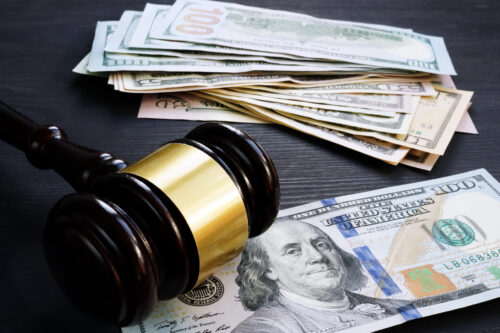
If you or a loved one has been arrested, it’s natural to be worried about securing their release from jail. Fortunately, there are ways for individuals to obtain temporary freedom until their court date. The court has complete discretion over setting the bail amount, which means it can be arranged at an astronomical amount, or they can deny bail altogether if you were charged with a violent crime or considered a flight risk. If this is the case, chances are, you will likely have to secure a bail bond. Please continue reading to learn how the bail bond process works and how a competent Chesterfield Criminal Defense Lawyer can help you understand your legal options.
What are bail bonds?
Following an arrest, as the defendant, you will reach an agreement with the court regarding posting a specific amount of money in exchange for the surety that you’ll return to court for your scheduled trial date. After you have appeared in court on your specified date, as per the bail agreement, you will get your money back. It is imperative to note that even if you are convicted at your trial, you will get your money back. If you fail to show up in court, that money will be forfeited, and a warrant for your arrest will be used to bring you back to jail as you violated the terms of your agreement.
Many people struggle to pay their bail because it can be set at an excessively high amount. This meant they could not be released from jail until their trial date, which could take months. It is imperative to note that correctional facilities and criminal offenses may enforce standard bail amounts, which can also hinder your ability to be released from jail. As such, they may have to turn to bail bonds. A bail bond is similar to a personal loan as you put down a small percentage of your bail amount, and a bail bond agent will provide you with the rest of the money you need for your bail.
How do they work in South Carolina?
A bail bond is an agreement where you pay a fraction of your bail amount; a bail bond agent will cover the rest. In most cases, you will have to provide them with some collateral. This can include any valuable assets such as a deed to a house, an item of jewelry, or a car. Collateral is used to secure the bail bond’s loan if you do not live up to your promise of appearing in court for your trial date. In this case, you would not get your money back; the money would be returned to the bail bond agency you received the loan from after the trial has concluded.
If you find yourself under arrest, it is in your best interest to contact a skilled Chesterfield County criminal defense lawyer from the Cockrell Law Firm, P.C., who can assist you in obtaining a fair bail amount and exploring the various types of bail bonds available, ensuring that you make the best decision for your situation.